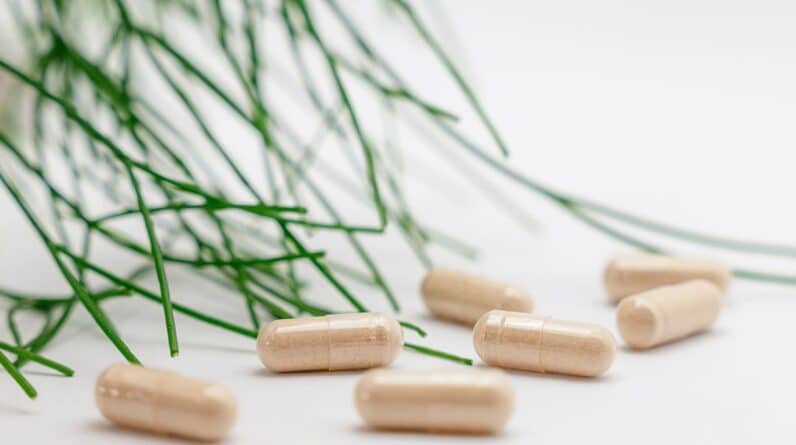Glutathione is a powerful antioxidant that plays a crucial role in maintaining your overall health and well-being. Often referred to as the body’s master antioxidant, it is a tripeptide composed of three amino acids: cysteine, glutamine, and glycine. This unique structure allows glutathione to perform a variety of functions that are essential for your body’s optimal functioning.
As you navigate through life, understanding the significance of glutathione can empower you to make informed choices about your health. In recent years, the importance of glutathione has gained considerable attention in the fields of nutrition and wellness. Many health enthusiasts and researchers alike have begun to recognize its multifaceted roles in the body.
From detoxification to immune support, glutathione is involved in numerous biochemical processes that contribute to your overall vitality. By delving deeper into the functions and benefits of this remarkable molecule, you can appreciate how it influences your health and well-being.
Key Takeaways
- Glutathione is a powerful antioxidant that plays a crucial role in protecting the body from oxidative stress and damage.
- Glutathione is essential for detoxification processes in the liver, helping to remove harmful toxins and chemicals from the body.
- Glutathione supports immune function by helping the body fight off infections and diseases.
- Glutathione is important for maintaining energy levels and reducing fatigue, as it helps to recycle other antioxidants like vitamin C and E.
- Glutathione has been linked to mental health, with low levels being associated with conditions like depression and anxiety.
The Role of Glutathione in the Body
Glutathione serves as a critical player in various physiological processes within your body. One of its primary roles is to neutralize free radicals, which are unstable molecules that can cause oxidative stress and damage to your cells. By scavenging these harmful substances, glutathione helps protect your cells from damage, thereby promoting cellular health and longevity.
This protective function is vital, as oxidative stress has been linked to numerous chronic diseases, including heart disease, diabetes, and cancer. Moreover, glutathione is essential for the synthesis and repair of DNIt plays a significant role in maintaining the integrity of your genetic material, ensuring that your cells function optimally. When DNA is damaged, it can lead to mutations and other issues that may compromise your health.
By supporting DNA repair mechanisms, glutathione contributes to cellular stability and overall well-being. Understanding these fundamental roles can help you appreciate the importance of maintaining adequate levels of this powerful antioxidant in your body.
Glutathione and Detoxification

One of the most well-known functions of glutathione is its role in detoxification. Your body is constantly exposed to various toxins, whether from environmental pollutants, processed foods, or even metabolic waste produced during normal bodily functions. Glutathione acts as a key player in the detoxification process by binding to these harmful substances and facilitating their removal from your body.
This process occurs primarily in the liver, where glutathione helps convert fat-soluble toxins into water-soluble compounds that can be easily excreted through urine or bile. The detoxification capabilities of glutathione extend beyond just environmental toxins. It also plays a vital role in neutralizing heavy metals such as lead, mercury, and cadmium.
These metals can accumulate in your body over time and lead to serious health issues if not properly managed. By supporting the detoxification process, glutathione helps safeguard your body from the harmful effects of these substances, allowing you to maintain optimal health.
Glutathione and Immune Function
Your immune system relies on a delicate balance of various components to function effectively, and glutathione is one of those essential elements. It plays a crucial role in regulating immune responses by modulating the activity of immune cells such as lymphocytes and macrophages. These cells are responsible for identifying and eliminating pathogens, including bacteria and viruses.
When glutathione levels are adequate, your immune system can respond more effectively to infections and other threats. Additionally, glutathione helps reduce inflammation in the body, which is a key factor in many chronic diseases. Chronic inflammation can weaken your immune system and make you more susceptible to illness.
By maintaining healthy levels of glutathione, you can support your immune function and promote a balanced inflammatory response. This connection between glutathione and immune health underscores the importance of this antioxidant in protecting you from various diseases and infections.
Glutathione and Energy Levels
If you’ve ever felt fatigued or low on energy, you might be surprised to learn that glutathione could be a contributing factor. This powerful antioxidant plays a significant role in energy production at the cellular level. It is involved in the process of converting nutrients from the food you eat into usable energy for your cells.
When glutathione levels are low, your cells may struggle to produce energy efficiently, leading to feelings of fatigue and lethargy. Moreover, glutathione helps combat oxidative stress that can occur during intense physical activity or periods of stress. When you engage in strenuous exercise or face emotional challenges, your body produces more free radicals, which can deplete your energy reserves.
By maintaining optimal levels of glutathione, you can enhance your energy production capabilities and improve your overall stamina. This connection between glutathione and energy levels highlights its importance for anyone looking to boost their vitality and performance.
Glutathione and Mental Health

The impact of glutathione extends beyond physical health; it also plays a significant role in mental well-being. Research has shown that low levels of glutathione are associated with various mental health conditions, including depression and anxiety. This connection may be attributed to glutathione’s ability to combat oxidative stress in the brain, which can negatively affect neurotransmitter function and mood regulation.
Furthermore, glutathione supports cognitive function by promoting healthy brain cell activity. It helps protect neurons from oxidative damage, ensuring that they can communicate effectively with one another. By maintaining adequate levels of this antioxidant, you may enhance your cognitive abilities and support emotional resilience.
Understanding the relationship between glutathione and mental health can empower you to take proactive steps toward improving your emotional well-being.
How to Increase Glutathione Levels
Given the numerous benefits associated with glutathione, you may be wondering how to increase its levels in your body. One effective way is through dietary choices. Foods rich in sulfur-containing amino acids—such as garlic, onions, cruciferous vegetables (like broccoli and Brussels sprouts), and legumes—can help boost your body’s natural production of glutathione.
Incorporating these foods into your diet can provide the necessary building blocks for synthesizing this vital antioxidant. In addition to dietary changes, certain lifestyle practices can also enhance glutathione levels. Regular exercise has been shown to increase glutathione production by promoting better circulation and reducing oxidative stress.
Furthermore, managing stress through mindfulness practices such as meditation or yoga can help maintain healthy levels of this antioxidant. Lastly, consider consulting with a healthcare professional about supplementation options if you’re concerned about your glutathione levels; they can guide you on safe and effective ways to support your health.
The Benefits of Glutathione
In conclusion, glutathione is an indispensable component of your overall health and well-being. Its multifaceted roles—ranging from detoxification and immune support to energy production and mental health—underscore its importance in maintaining optimal bodily functions. By understanding the significance of this powerful antioxidant, you can take proactive steps toward enhancing your health through dietary choices and lifestyle practices.
As you continue on your journey toward better health, remember that supporting your body’s natural production of glutathione can lead to numerous benefits. Whether you’re looking to boost your energy levels, strengthen your immune system, or improve your mental well-being, prioritizing glutathione can be a game-changer. Embrace the knowledge you’ve gained about this remarkable molecule and consider how it can positively impact your life moving forward.
If you are interested in learning more about common supplement ingredients, you may want to check out this article. It provides detailed information on various ingredients commonly found in supplements, including glutathione. Additionally, if you have specific dietary restrictions such as being gluten-free or lactose-free, you may find this article helpful in finding suitable supplements. For those looking for scientific evidence supporting the effectiveness of supplements, this article offers valuable insights.
FAQs
What is glutathione?
Glutathione is a powerful antioxidant that is naturally produced in the body. It plays a crucial role in protecting cells from oxidative stress and maintaining overall health.
How does glutathione make me feel good?
Glutathione helps to detoxify the body by removing harmful toxins and free radicals. This can lead to improved energy levels, better mental clarity, and an overall sense of well-being.
What are the benefits of glutathione?
Glutathione has been linked to a wide range of health benefits, including improved immune function, reduced inflammation, and enhanced detoxification. It has also been associated with anti-aging effects and improved skin health.
How can I increase my glutathione levels?
There are several ways to naturally boost glutathione levels in the body, including consuming foods rich in sulfur (such as garlic, onions, and cruciferous vegetables), getting regular exercise, and getting enough sleep. Additionally, glutathione supplements are available for those looking to increase their levels.
Are there any risks associated with taking glutathione supplements?
While glutathione supplements are generally considered safe for most people, it’s always best to consult with a healthcare professional before starting any new supplement regimen. Some individuals may experience mild side effects such as stomach upset or allergic reactions.






